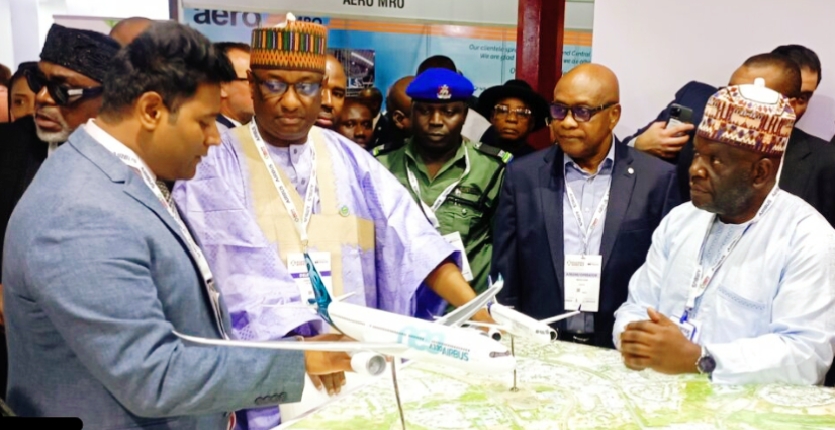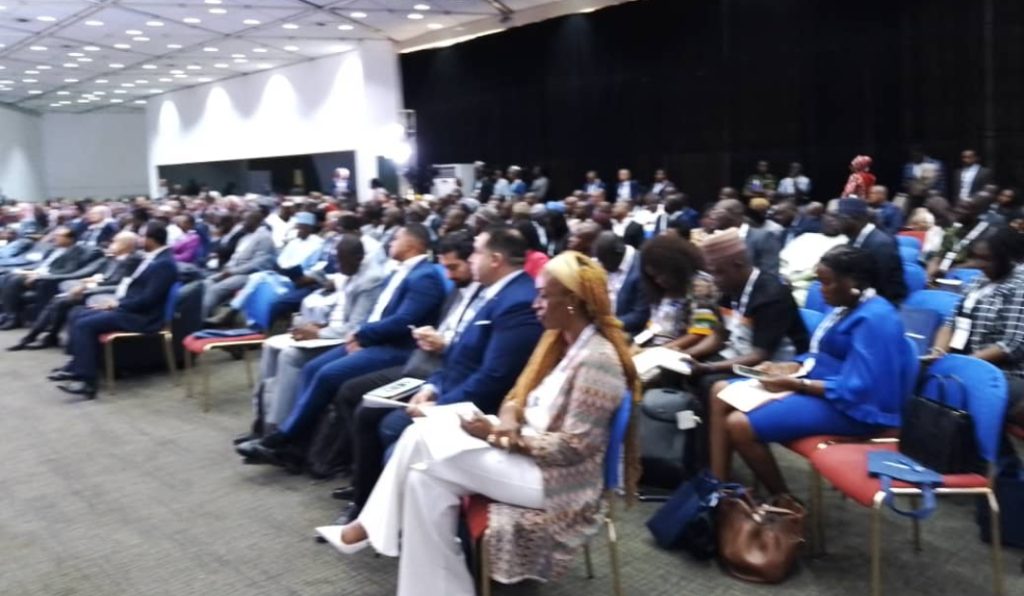
Maryam Aminu
The Federal Government of Nigeria has pledged to make Nigeria the aviation hub of Africa as part of its ways to attract foreign investors into the aviation industry, thus contributing significantly to economic growth.
Declaring open the 2023 Seventh Edition of the Aviation Africa Summit and Exhibition, the Honourable Minister of Aviation and Aerospace development, Festus Keyamo,
described the development of aviation as a vital catalyst for growth and advancement of modern society and integral to achieving the United Nation’s sustainable development goals.
“It is the current government’s goal to make Nigeria the home of aviation in Africa,”
Speaking on the theme: Stepping up for business, he said the government is actively seeking foreign investment to enhance the sector with various projects in the pipeline to upgrade the airport infrastructure, including the construction of a new runway in Abuja and plans to develop an aerotropolis for which a site has already been secured.
He lamented that it was a shame for the entire West African countries not to have world-class MRO facilities, but assured that the country would take the lead in this.
Keyamo further expressed displeasure with the trapped funds of foreign airlines in Nigeria.
The Minister reiterated the government’s support for Nigeria and West Africa’s aviation industry.
While reeling the importance of cooperation, Keyamo added that the Aviation Africa summit provides an ideal opportunity to network, address the challenges and find solutions that can be implemented to help advance Africa’s aviation sector.

Earlier speaking, the Summit Chairman, Alan Peaford, while delivering his opening remarks, said: “This is the first time we’ve hosted the summit in West Africa, but it’s not before it’s time. Nine years ago when the first summit was planned it was impossible to hold it on the continent. There were too many examples of visa restrictions for intra-African connectivity, hence the first summit being hosted in Dubai. But a year later and Rwanda had completed the process for visas on arrival thus paving the way for hosting the event for where it needed to be.”
Underlining that the enthusiasm, passion and commitment to the industry is apparent, he added: “There is no doubt that Nigeria is serious about its plans to finally develop a cohesive and competitive aviation industry.”
Peaford also highlighted that despite geo-political challenges, poor connectivity, a lack of investment in infrastructure and a shortage of maintenance, repair and overhaul (MRO) facilities, Africa and West Africa in particular is stepping up its intent to recognise the value that aviation can bring to each country’s economy. “We’ve seen many new and often repeated initiatives and great ideas on the African continent but they’ve stumbled through inertia or strong resistance,” he said. “We have to find a way to change this, but it has to be the African way. There are shared goals but we have to recognise these can be achieved in a different way. For those outside the continent we must recognise we benefit from learning the African way.” Said Peaford.

Speaking also, the regional VP International Air Transport Association (IATA), Kamil Al-Alwadhi disclosed that airlines in Africa faces a unique set of issues that are not the same as elsewhere. “In Nigeria an airline would need to pay 26% interest on any loans they take, while insurance can be 10 times more expensive than elsewhere, safety incidents are eight times higher and excessive fees on the continent in terms of fuel and airport charges are further hindering growth.”
To address these challenges, IATA introduced its Focus Africa initiative in April this year to align private and public stakeholders in strengthening aviation’s contribution to Africa’s economic and social development, while improving connectivity, safety and reliability. “We need to take a holistic view on addressing these challenges. Africa accounts for 18% of the global population but just 2.1% of air transport activities. We need to close that gap,” Al-Alwadhi said.
Reacting to Al-Alwadhi’s concern about high airport and fuel charges, Lieutenant General Mohamed Abbas Helmy, Minister of Civil Aviation Egypt said it was essential to increase airport charges to develop infrastructure in line with increasing demand. “We are fully aware of the financial burdens our African companies incure whether it’s in terms of rising service prices, which are up to 8% higher than the industry average or fuel prices which represent more than 30% of operating costs and are 12% higher than the average global prices. However, it’s a practice that’s followed by most international airports.”
Helmy also stated that while the challenges in Africa are great the opportunities are also promising. “We as governments on the African continent must face these challenges so that they do not affect the capabilities of this vital sector to grow and develop.”










